 |
Sonny listens to a recorded English tour
presentation at Panorama Racławicka. Behind him is
a section of the painting depicting the Battle of Racławice. Photo courtesy of Zosia Zgolak |
 |
Zosia stands outside Panorama Racławicka. |
 |
Across the Oder River is Ostrów Tumski, the oldest part of Wrocław. |
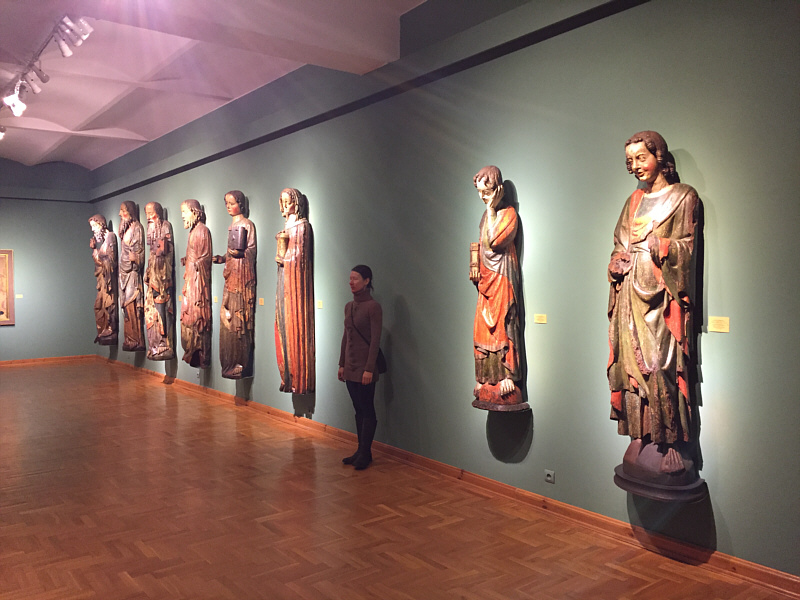 |
Zosia fills in for an absent saint along this wall in the National Museum in Wrocław. |
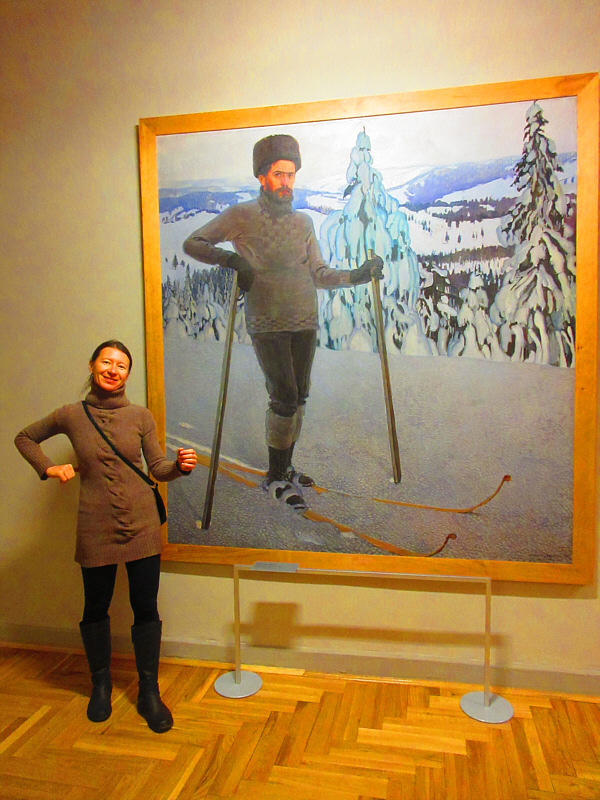 |
The skier in the painting is uncannily
dressed just like Zosia. Photo courtesy of Zosia Zgolak |
 |
Sonny relaxes in his room at the hostel. Photo courtesy of Zosia Zgolak |
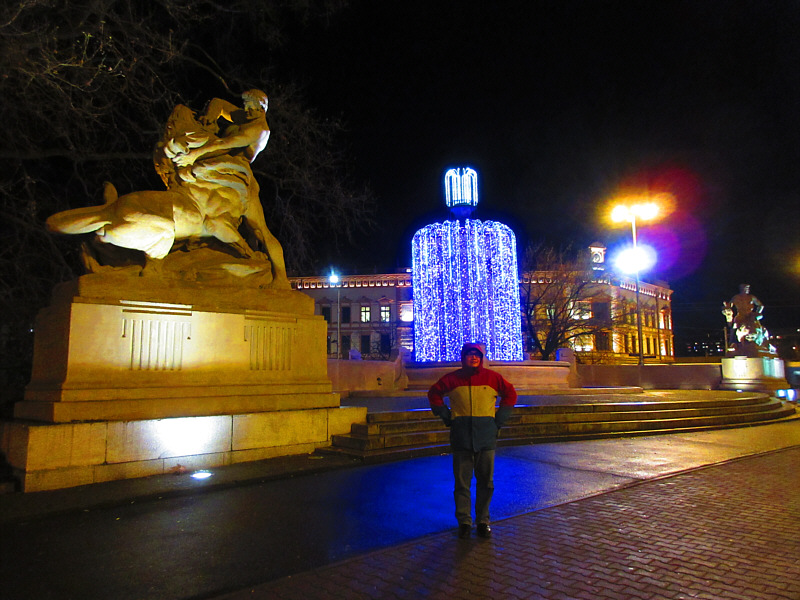 |
Sonny tries to imitate the Fight and
Victory Fountain on Ruska Street. Photo courtesy of Zosia Zgolak |
 |
Zosia finds her namesake dwarf, Zoska,
in front of Coctail Bar Max & Dom Whisky. Photo courtesy of Zosia Zgolak |
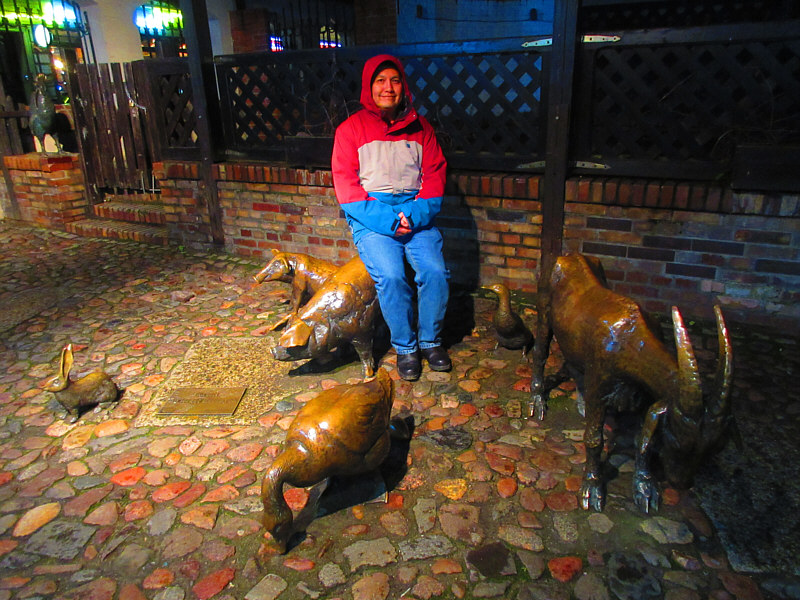 |
These statues located in Jatki Street are a memorial to slaughtered animals. In the past, this was the location of the town's abattoir. Note the rooster at upper left. Photo courtesy of Zosia Zgolak |
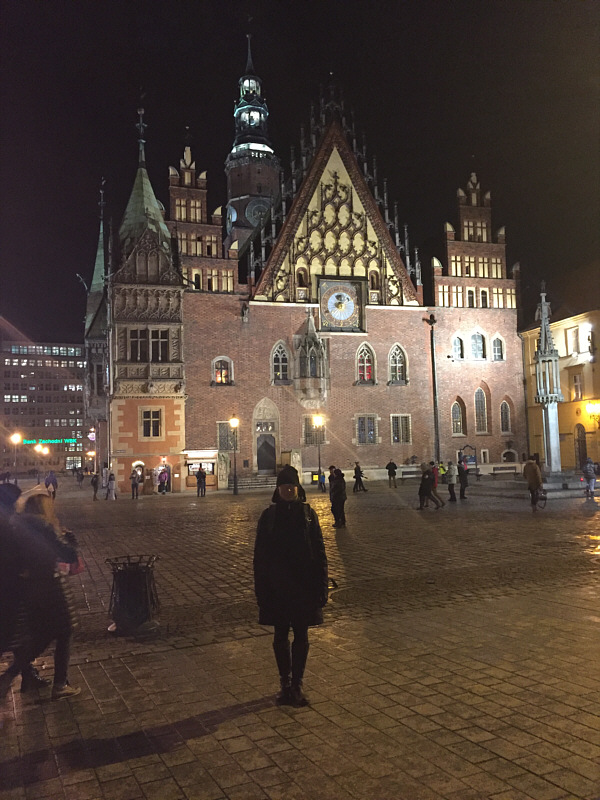 |
Zosia stands in front of the Wrocław Town Hall. |
 |
Sonny
rubs Breslau Bear's tongue outside the Town Hall for good luck.
Prior to the end of World War 2, Wrocław was known as Breslau
and belonged to Germany. Photo courtesy of Zosia Zgolak |
Zosia and I were originally scheduled to leave Wrocław on a late afternoon bus, but having visited all the places we wanted to see by noon, we decided to go to the bus depot to see if we could get our tickets changed to an earlier departure. Unfortunately, the bus company would not allow for ticket changes on the spot even though the earlier bus had plenty of empty seats. We were told that we had to make the changes online, and we likely would have had to pay extra.
Abandoning our attempt to change our bus tickets, we ended up with about four hours to kill. Rather than waste that time wandering the shopping mall which stood above the bus depot, we walked about 4 kilometres northeast to the Four Domes Pavilion museum. This was another museum that we could get into using our admission tickets from Panorama Racławicka. Despite the long walk to get there, I found the Four Domes Pavilion to be the most interesting of the three museums we visited in Wrocław. The contemporary art displayed there is probably not everyone's cup of tea, but I quite enjoyed the many thought-provoking exhibits. Even the museum building itself is quite intriguing with its austere white walls and open spaces.
By the end of our visit to Four Domes Pavilion, we were starting to feel a little weary, but we managed to hike another 4 kilometres back to the bus depot for our scheduled departure to the next city on our itinerary--Kraków.
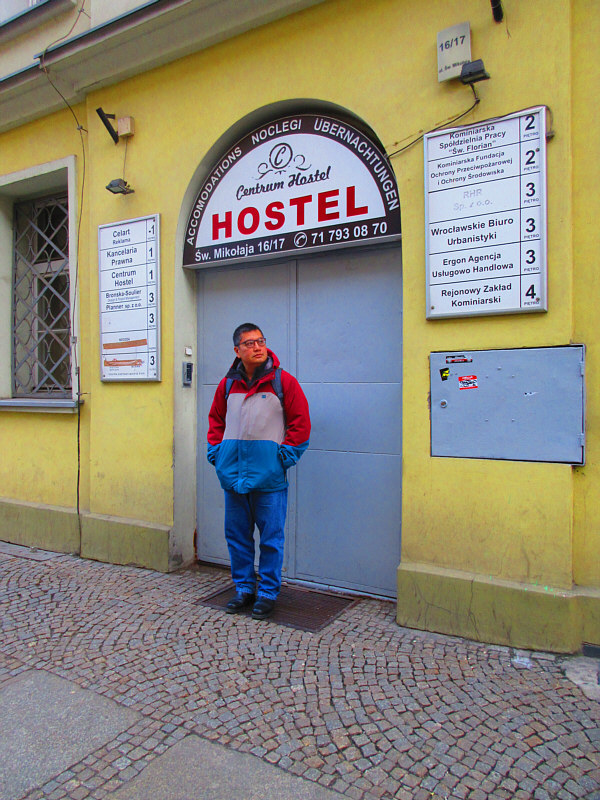 |
Sonny steps outside of the Centrum
Hostel in the morning. Photo courtesy of Zosia Zgolak |
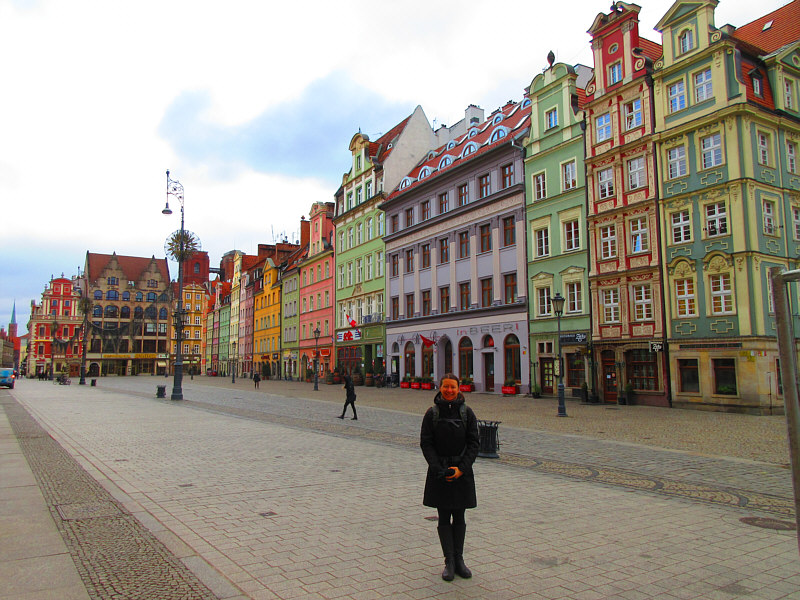 |
Old Town reveals its colours in
daytime. Photo courtesy of Zosia Zgolak |
 |
Sonny hangs out in front of a bakery in Market Square. Photo courtesy of Zosia Zgolak |
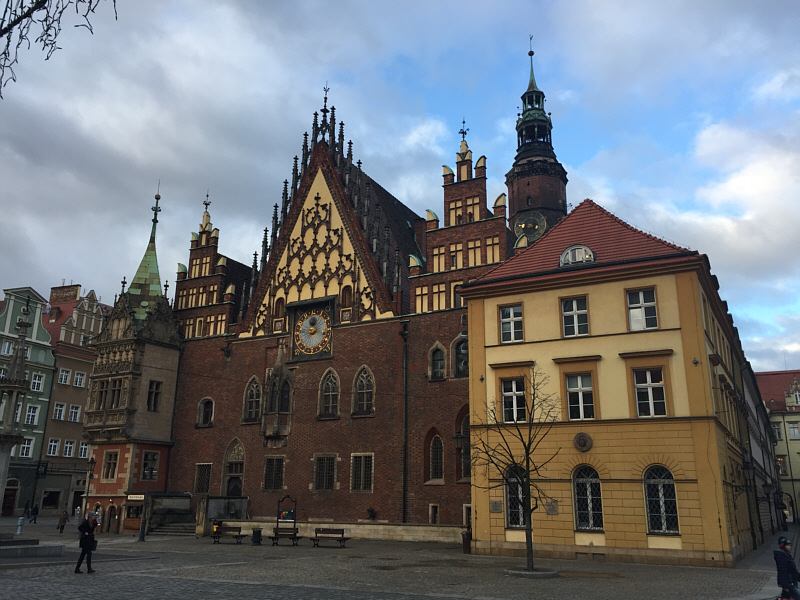 |
The Town Hall looks just as impressive in daylight. |
 |
Strange figures populate the boulevard near Piaskowy bridge. Photo courtesy of Zosia Zgolak |
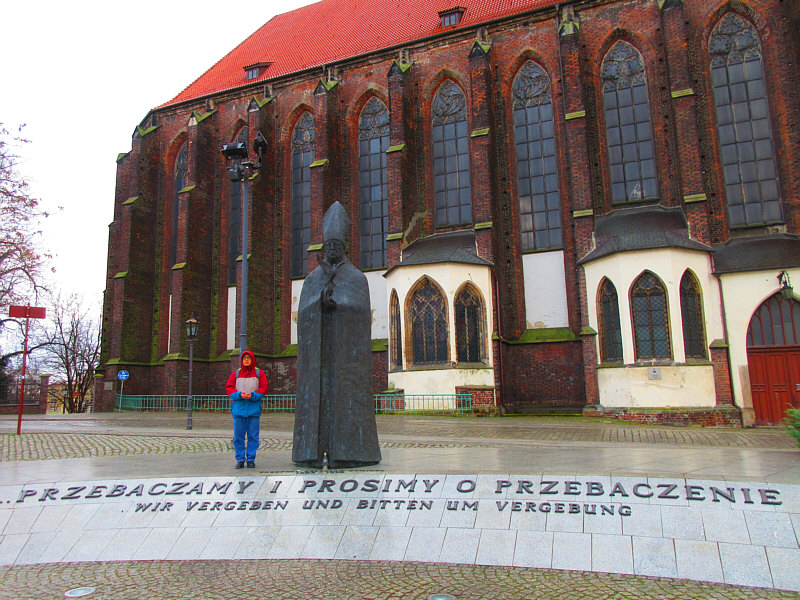 |
This giant bishop stands outside the Church of the Blessed Virgin Mary on the Sand. The inscription below reads "We forgive and ask for forgiveness" in both Polish and German. Photo courtesy of Zosia Zgolak |
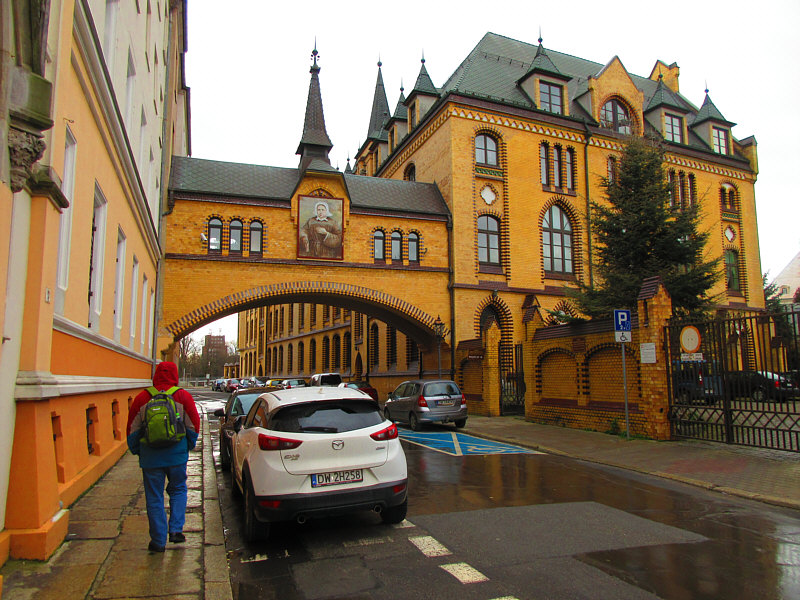 |
Sonny walks toward a portrait of St. Elizabeth on an overpass in Ostrów Tumski. Photo courtesy of Zosia Zgolak |
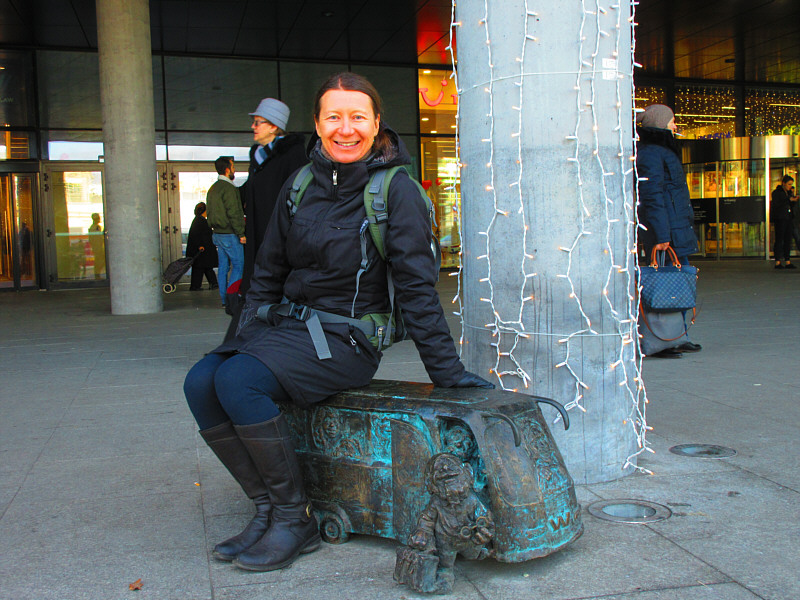 |
Zosia tries to hitch a ride on a dwarf bus. Photo courtesy of Zosia Zgolak |
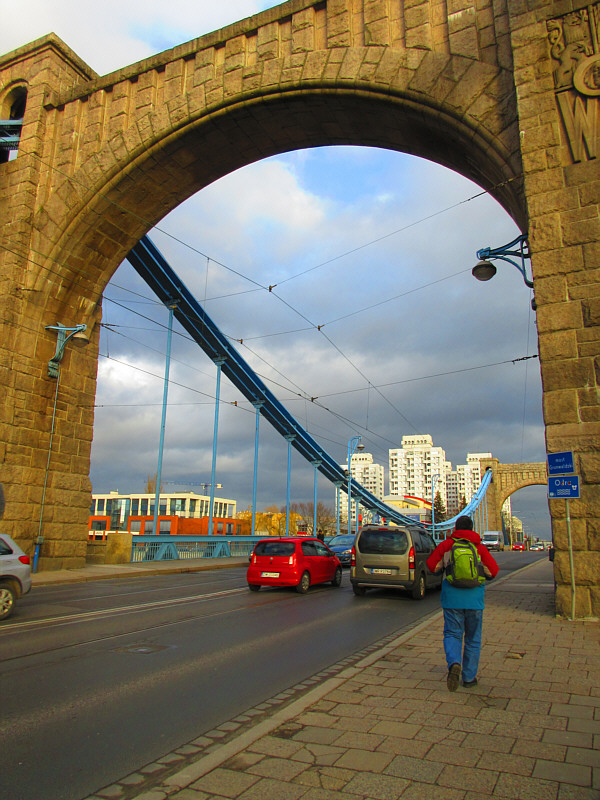 |
The Grunwald Bridge's mix of steel and granite gives it a distinctive look. Photo courtesy of Zosia Zgolak |
 |
Sonny walks along a scenic pathway
near the Wrocław University of Science and Technology. Photo courtesy of Zosia Zgolak |
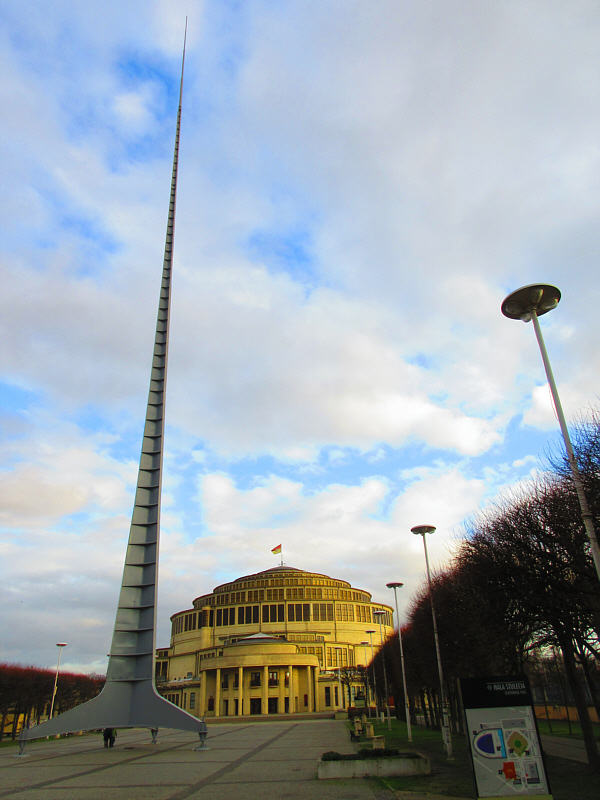 |
This steeple in front of Centennial Hall is nearly 100 metres high. Photo courtesy of Zosia Zgolak |
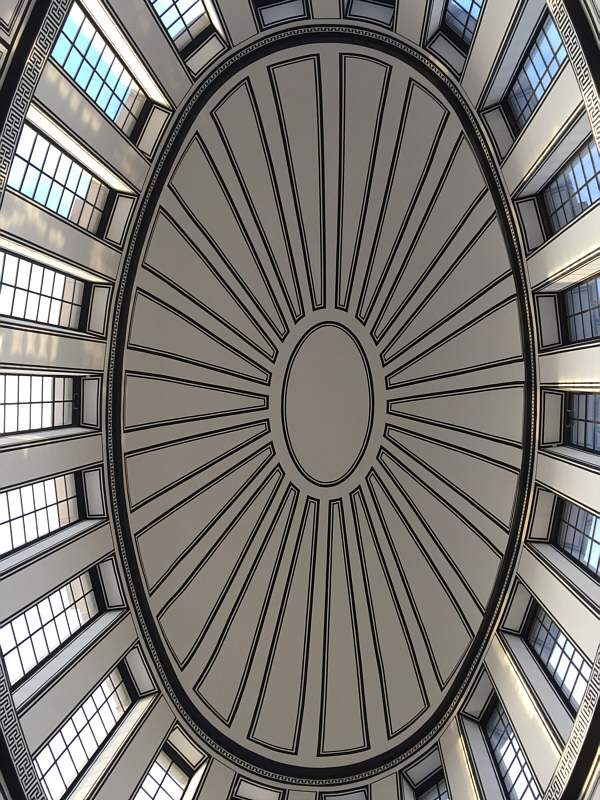 |
This is the ceiling of one of the domes at Four Domes Pavilion museum. |
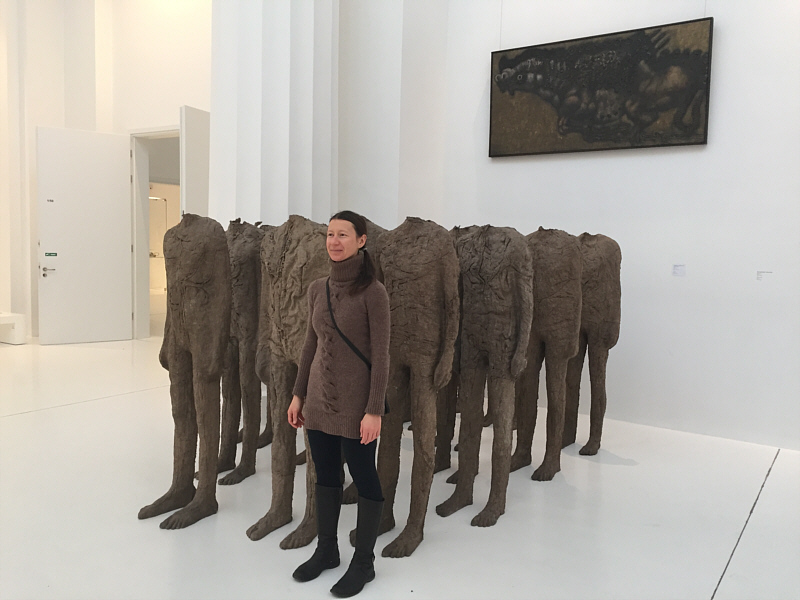 |
Zosia falls in with a crowd of headless figures made of burlap. |

This is one of the larger paintings on display at Four Domes Pavilion.
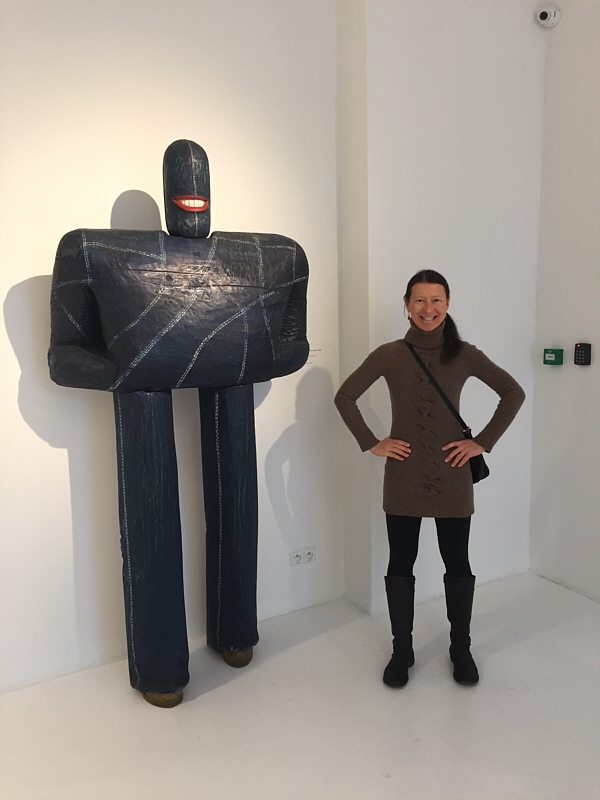 |
Zosia finds a friend with a similar smile. |